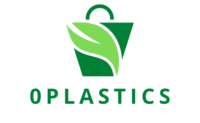The food service industry is increasingly adopting alternatives to single-use plastics as part of its commitment to sustainability and environmental responsibility. These alternatives offer practical solutions to reduce plastic waste while maintaining the convenience of single-use items. Here’s how they are being used in the food service sector:
1. Biodegradable and Compostable Tableware:
- Biodegradable and compostable plates, bowls, utensils, and cups made from materials like cornstarch, sugarcane, and bamboo are widely used in food service. These items are designed to break down naturally, reducing plastic waste.
2. Paper and Cardboard Packaging:
- Food establishments often opt for paper and cardboard packaging for takeout containers, coffee cups, and burger wrappers. These materials are recyclable and biodegradable, making them eco-friendly alternatives to plastic.
3. Reusable Containers:
- Some restaurants and cafes offer reusable food containers, coffee cups, and cutlery to customers. After use, these items can be washed and returned, reducing the need for single-use plastic equivalents.
4. Stainless Steel and Glass Straws:
- Many food service businesses have replaced plastic straws with stainless steel or glass alternatives. These reusable straws are not only environmentally friendly but also hygienic and durable.
5. Cloth Napkins and Towels:
- Cloth napkins and towels are replacing single-use paper napkins and disposable cleaning wipes in food service establishments, reducing paper waste.
6. Bulk Dispensers:
- Some restaurants and cafeterias have adopted bulk dispensers for condiments, salad dressings, and sauces. Customers can fill their own containers, reducing the use of single-serving plastic packets.
7. Plant-Based Packaging:
- Plant-based plastics, or bioplastics, are used for packaging food items like salads and sandwiches. These materials can be composted, providing an eco-friendly option for food service.
8. Wooden and Bamboo Cutlery:
- Wooden and bamboo cutlery sets are replacing plastic utensils in many food service settings. They are biodegradable and sustainable.

9. Cloth and Tote Bags:
- Some food service businesses offer cloth or tote bags for customers to carry their takeout orders. This reduces the need for plastic bags and encourages reusability.
10. Food Containers Made from Recycled Materials:
- Containers made from recycled plastic or other recycled materials are being used by some food service establishments, supporting the circular economy by giving new life to plastic waste.
11. Bulk Purchasing and Waste Reduction:
- Many food service providers are adopting bulk purchasing practices to reduce packaging waste. Buying in larger quantities can minimize the use of single-use plastic packaging.
12. Educating Customers:
- Food service businesses play a vital role in educating customers about the environmental impact of single-use plastics and encouraging the use of alternatives. This can include information on menus, signage, or social media campaigns.
By incorporating these alternative materials and practices, the food service industry is taking steps to minimize its contribution to plastic pollution and embrace sustainable alternatives that are both eco-friendly and customer-friendly. As consumer demand for environmentally responsible options continues to grow, the adoption of these alternatives is expected to increase further, supporting a more sustainable food service sector.
